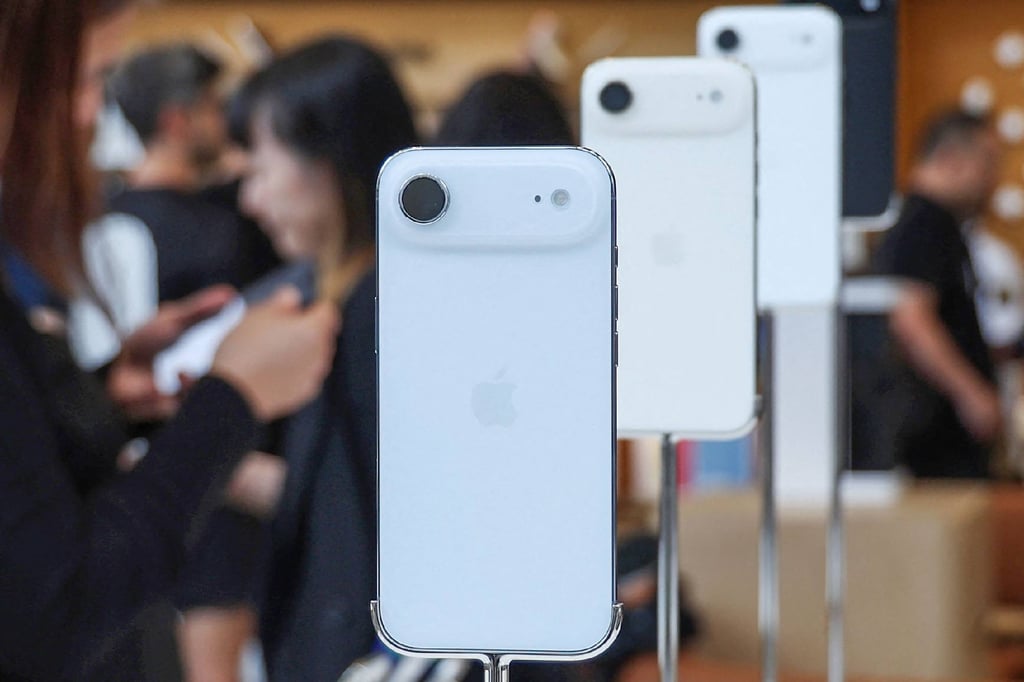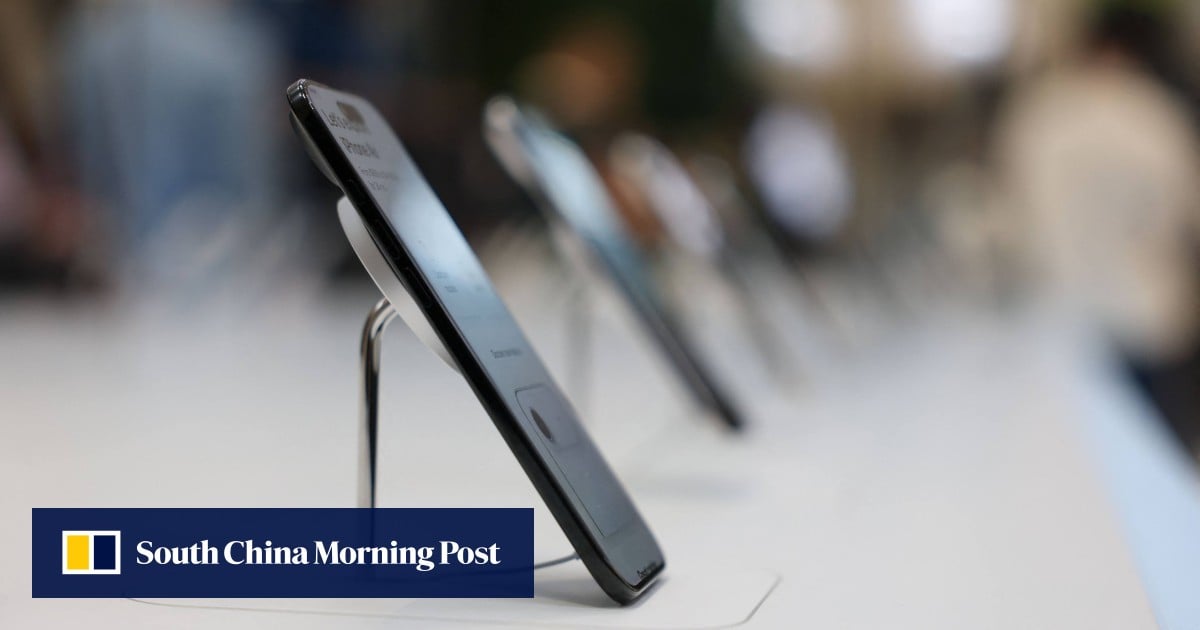The launch of the iPhone Air as the first eSIM-supported smartphone sold in China marks a pivotal moment in the country’s telecoms history, as state-owned mobile carriers vie for dominance in a changing landscape.
Beijing approved “commercial trials” of the handset’s eSIM function by the country’s “Big Three” telecoms operators – China Unicom, China Mobile and China Telecom – last week, and the iPhone Air sold out within minutes of its release on Friday.
Domestic brands quickly followed suit. Oppo launched its Find X9 Pro with eSIM support on Thursday, and Huawei Technologies was expected to release a model “in the near future”, according to social media posts by China Telecom.
eSIMs, or embedded SIMs, are digital SIM cards that are built into devices. eSIMs can store multiple profiles, allowing users to switch between different mobile carriers or plans without the hassle of changing physical SIM cards.
 The iPhone Air is Apple’s thinnest smartphone to date. Photo: AFP
The iPhone Air is Apple’s thinnest smartphone to date. Photo: AFP
The three major Chinese mobile service operators had adopted different approaches towards eSIM, according to Guo Tianxiang, research manager at consultancy IDC China.

